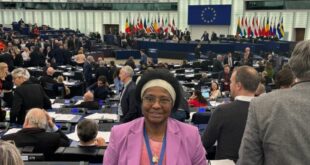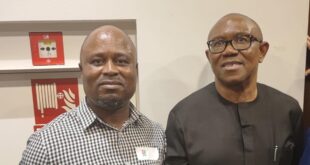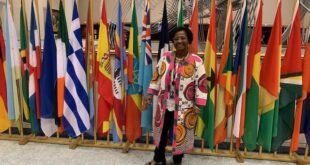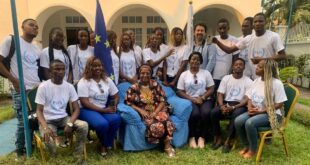British historian, broadcaster and film-maker David Olusoga has been appointed by the University of Manchester as a Professor of Public History, the institution announced on Tuesday.
Olusoga, who co-presented the BBC’s landmark series Civilisations in 2018, is one of the UK’s foremost historians whose main subject areas are empire, race and slavery.
Olusoga was born in Nigeria to a Nigerian father and British mother, and migrated to the UK with his mother as a young child. He later attended the University of Liverpool to study the history of slavery.
An award-winning television producer and presenter, Olusoga worked on programmes such as Namibia Genocide and the Second Reich, The Lost Pictures of Eugene Smith and Abraham Lincoln: Saint or Sinner. His most recent TV series include Black and British: A Forgotten History, The World’s War, A House Through Time and Britain’s Forgotten Slave Owners.
As well as his TV work, Olusoga is an award-winning author. His books include Civilizations: Encounters and the Cult of Progress, The World’s War, which won First World War Book of the Year, Black & British: A Forgotten History, which was awarded both the Longman-History Today Trustees Award and the PEN Hessell-Tiltman Prize and The Kaiser’s Holocaust: Germany’s Forgotten Genocide and the Colonial Roots of Nazism.
“David Olusoga’s insightful and inspiring research addresses some of the thorniest issues of human history, and his passion, clarity and depth set a very high standard,” said Professor Alessandro Schiesaro, Head of the School of Arts, Languages and Cultures at The University of Manchester. “His appointment as Professor of Public History at Manchester further strengthens our commitment to broadening the curriculum and to playing an active role in the public engagement with historical studies.”
Sola Jolaoso
 THE AFRICAN COURIER. Reporting Africa and its Diaspora! The African Courier is an international magazine published in Germany to report on Africa and the Diaspora African experience. The first issue of the bimonthly magazine appeared on the newsstands on 15 February 1998. The African Courier is a communication forum for European-African political, economic and cultural exchanges, and a voice for Africa in Europe.
THE AFRICAN COURIER. Reporting Africa and its Diaspora! The African Courier is an international magazine published in Germany to report on Africa and the Diaspora African experience. The first issue of the bimonthly magazine appeared on the newsstands on 15 February 1998. The African Courier is a communication forum for European-African political, economic and cultural exchanges, and a voice for Africa in Europe.

































